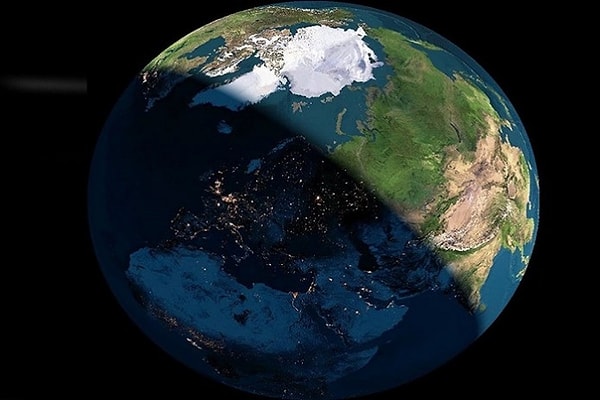Climate change is even affecting the speed of the Earth! By slowing down the planet's rotation, it's making our days longer. According to a study published in the Proceedings of the National Academy of Sciences, the Earth is expanding!
Climate Change Is Making Days Longer: Earth's Rotation Slows Down Due to Warming

Climate change is lengthening our days!

Scientists indicate that human-induced emissions could have greater impacts on Earth than expected. New findings show that melting glaciers might affect the length of a day more significantly than previously predicted. Climate change is slowing Earth's rotation, causing days to lengthen. Although this change is only a few milliseconds, it could have significant effects on our modern technological systems, which rely on precise atomic clocks.
Until now, a few milliseconds were added to a day every century!
For thousands of years, the gravitational effect of the moon has been slowing Earth's rotation, adding a few milliseconds to a day every century, as proven by scientists. However, now the human factor is also affecting Earth's speed and, consequently, the length of a day.
As Earth slows down, its shape changes: it bulges!

Due to global warming, the melting Greenland and Antarctic ice sheets cause water to redistribute from the poles to the equator. This changes Earth's shape by flattening the poles and widening the middle, which slows down the rotation speed.
Prof. Benedikt Soja compares this situation to "a skater pulling their arms close to their body to spin faster and then extending their arms to slow down."
However, if humans continue to consume fossil fuels and Earth continues to warm as a result, this effect could become greater than the moon's influence. This suggests that climate change could be the most decisive factor in this context.
Sea level rise in the 20th century changed the length of a day by 0.3 to 1 millisecond.
According to a report by Euro News, a study conducted by scientists from ETH Zurich and supported by NASA used observational data and climate models to calculate the effect of global warming on the length of a day between 1900 and 2100. In the 20th century, sea level rise caused the length of a day to change by 0.3 to 1 millisecond.
This duration could increase further with greenhouse gas emissions and warming oceans!
If greenhouse gas emissions continue to increase, glaciers melt faster, and oceans warm further, the length of a day could increase by 2.62 milliseconds by the end of the century. This could surpass the moon's influence, becoming the most decisive factor.

